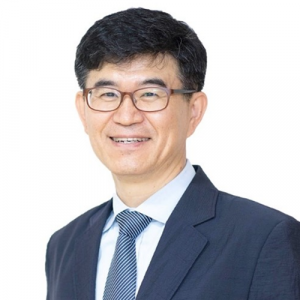bioYeongjoo joined AFoCO in 2009 to make forests green in Asia. He worked as the main negotiator during the earliest stage of the organization’s foundation. After its establishment he collaborated with many developing countries, including ASEAN Member States and others in Asia. He has been Director of the Planning and Budget Division of the AFoCO Secretariat since 2017 and Director of the Capacity Development Division since 2021. Before joining AFoCO, he was a researcher engaged in identifying natural resources management conflicts between civil society and government and finding ways to solve them, particularly in the management of protected areas such as national parks and nature reserves. Following his doctoral degree at Seoul National University, he published research articles on protected area management and two books about forest healing and rural tourism development in Korea.

CIFOR-ICRAF aborda retos y oportunidades locales y, al mismo tiempo, ofrece soluciones a los problemas globales relacionados con los bosques, los paisajes, las personas y el planeta.
Aportamos evidencia empírica y soluciones prácticas para transformar el uso de la tierra y la producción de alimentos: conservando y restaurando ecosistemas, respondiendo a las crisis globales del clima, la malnutrición, la pérdida de biodiversidad y la desertificación. En resumen, mejorando la vida de las personas.
GOBERNANZA

Explore eventos futuros e passados em todo o mundo e online, sejam hospedados pelo CIFOR-ICRAF ou com a participação de nossos pesquisadores.
EVENTOS PRÓXIMOS

ÚLTIMAS NOTÍCIAS
A ciência precisa de canais de comunicação claros para cortar o ruído, para que a pesquisa tenha algum impacto. O CIFOR-ICRAF é tão apaixonado por compartilhar nosso conhecimento quanto por gerá-lo.

Découvrez les évènements passés et à venir dans le monde entier et en ligne, qu’ils soient organisés par le CIFOR-ICRAF ou auxquels participent nos chercheurs.
EVENTOS PRÓXIMOS

Jelajahi acara-acara mendatang dan yang telah lalu di lintas global dan daring, baik itu diselenggarakan oleh CIFOR-ICRAF atau dihadiri para peneliti kami.
EVENTOS PRÓXIMOS

Actualités
Pour que la recherche ait un impact, la science a besoin de canaux de communication clairs pour aller droit au but. CIFOR-ICRAF est aussi passionné par le partage de ses connaissances que par leur production.

ÚLTIMAS NOTICIAS
Para que la investigación pueda generar algún impacto, los conocimientos científicos requieren de canales de comunicación claros. En CIFOR-ICRAF, compartir nuestros conocimientos nos apasiona tanto como generarlos.

Explore eventos futuros y pasados organizados por CIFOR-ICRAF o con la participación de nuestros investigadores.
EVENTOS PRÓXIMOS

CIFOR-ICRAF produce cada año más de 750 publicaciones sobre agroforestería, bosques y cambio climático, restauración de paisajes, derechos, políticas forestales y mucho más, y en varios idiomas. .
EXPLORE NUESTROS RECURSOS
Consulte las productos de investigación de CIFOR-ICRAF, disponibles en una amplia variedad de formatos y en línea.
Kabar terbaru
Ilmu pengetahuan membutuhkan saluran komunikasi yang jelas untuk mencapai tujuan, jika ingin dampaknya terlihat. CIFOR-ICRAF sangat bersemangat untuk berbagi pengetahuan sembari menghasilkan pengetahuan itu sendiri.

CIFOR-ICRAF genera impacto mediante conocimiento científico de vanguardia. Desarrollamos investigaciones innovadoras, fortalecemos las capacidades de nuestros socios y dialogamos activamente con todas las partes interesadas, aportando el conocimiento más reciente sobre los bosques, árboles, paisajes y personas para la toma de decisiones a escala mundial.

CIFOR-ICRAF aborda retos y oportunidades locales y, al mismo tiempo, ofrece soluciones a los problemas globales relacionados con los bosques, los paisajes, las personas y el planeta.
Aportamos evidencia empírica y soluciones prácticas para transformar el uso de la tierra y la producción de alimentos: conservando y restaurando ecosistemas, respondiendo a las crisis globales del clima, la malnutrición, la pérdida de biodiversidad y la desertificación. En resumen, mejorando la vida de las personas.
GOBERNANZA

CIFOR–ICRAF achieves science-driven impact. We conduct innovative research, strengthen partners’ capacity and actively engage in dialogue with all stakeholders, bringing the latest insights on forests, trees, landscapes and people to global decision making.

CIFOR–ICRAF publishes over 750 publications every year on agroforestry, forests and climate change, landscape restoration, rights, forest policy and much more – in multiple languages.
Explore our knowledge
Browse CIFOR–ICRAF’s published research in a wide range of formats, all of which are available for free online.

CIFOR–ICRAF addresses local challenges and opportunities while providing solutions to global problems for forests, landscapes, people and the planet.
We deliver actionable evidence and solutions to transform how land is used and how food is produced: conserving and restoring ecosystems, responding to the global climate, malnutrition, biodiversity and desertification crises. In short, improving people’s lives.
Governance
Para consultas de carácter general
El Centro para la Investigación Forestal Internacional y el Centro Internacional de Investigación Agroforestal (CIFOR-ICRAF) fomenta el poder de los árboles, los bosques y los paisajes agroforestales para hacer frente a los desafíos globales más apremiantes de nuestro tiempo: la pérdida de biodiversidad, el cambio climático, la seguridad alimentaria, los medios de vida y la inequidad.CIFOR e ICRAF son Centros de Investigación CGIAR.
Para consultas de carácter general:
Para consultas de medios de comunicación, póngase en contacto con:
Suscríbase al boletín de noticias de CIFOR-ICRAF
© 2024 Centro para la Investigación Forestal Internacional (CIFOR) y Centro Internacional de Investigación Agroforestal (ICRAF) | CIFOR e ICRAF son Centros de Investigación del CGIAR | Aviso de privacidad de CIFOR-ICRAF









